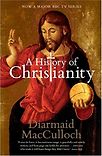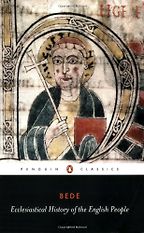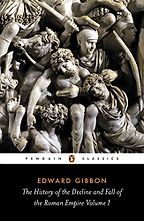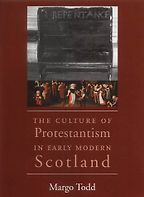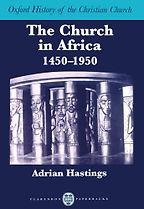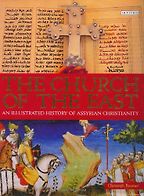The topic you’ve chosen is the history of Christianity, which is pretty huge. How did you decide what particular areas of it to focus on?
There is a lot to cover. It’s 2000 years of human history, or, as I put it in a recent book, really 3000 years, because you can’t really separate out the religion’s Jewish and Greek heritage. It also involves the entire world now, apart (officially) from Saudi Arabia and North Korea.
What you can do is separate out the various strands in its history. The three obvious ones are Catholicism, Orthodoxy and Protestantism. What also fascinated me as I wrote my book were the bits of Christianity not covered by those categories – the really ancient Christianities of the Middle East, which in many ways are more in touch with the very first Christians. They are given dismissive names by the mainstream, like Monophysites or Nestorians. But if you get a strong sense of these different categories – the big three and also the other bits of Christianity that could have been the future of the Church – then it becomes a bit simpler to grasp.
Let’s start with Bede’s Ecclesiastical History.
Bede lived in the 7th and 8th centuries of the Christian era. He lived in England, and he’s very, very conscious of being what he would call an Anglus, or Englishman. He’s writing about 130 years after the English had first experienced Christianity, and so one reason to choose Bede is that if you’re in any sort of English-speaking tradition, his history is the first really, really big piece of history in that tradition. If you’re in the United States or in Australia, you’re still in a sense the heir to this man’s book.
“If you’re interested in numbers, the future is bright for Christianity.”
Another reason it’s important is that when he was writing there wasn’t a thing called England. There were these people, many of whom would call themselves Angli, and he calls his book An Ecclesiastical History of the English People, the Gens Anglorum. He doesn’t use the word ‘England’ because it didn’t yet exist. Bede is actually one of the people who creates this sense of Englishness – and it’s very much associated with the idea of the Church. His book is a celebration of the English becoming Christian, and, in the centuries after him, these people, the Angli, will think of themselves as a single nation, England. It’s a very important piece of history – the first real, proper history that the English wrote about themselves – and it’s one of the earliest pieces of church history.
The third thing about it is that it’s just delightful. Christian history had been going for six centuries or so; there were little fragments of history in some big books. But Bede is really readable. He has wonderful stories, human interest stories, and he talked to people – very old men who remembered things before his time. He was careful about getting documents, and there are all sorts of little ways in which he feels a bit like a modern historian. I find that very engaging and exciting – that you can meet someone from this very remote place, this very remote world, and still feel, ‘Yes – I could talk to this person.’
Is it a particularly English or local form of Christianity that he discusses?
It’s a very Rome-centred history, because the mission that came to England was sent by the Pope and that was very unusual; popes weren’t great at starting missions at the time. The English were very, very proud of that fact. They felt really drawn to Rome, and united with Rome. So Bede’s story is celebrating his people’s association with this far away place, Rome, which was the centre of the Roman Empire. The people who also shared his land, the British Isles, – the Celts, the Irish, the Welsh, and the Scots – were not as loyal to Rome. He makes a big point about this and sort of sneers at them.
I’ll read you a little bit: ‘The Britons [in other words the people who aren’t Angli] for the most part have a national hatred for the Angli and uphold their own bad customs against the true Easter of the Catholic Church.’
That was a big sticking point, at that time, which date they celebrated Easter on. So you get a sense that for him being in a relationship with Rome is what it is to be true, and yet also curiously what it is to be local, to be where he is in the north of England.
Let’s go on to Edward Gibbon’s Decline and Fall of the Roman Empire and how that fits in with the history of Christianity.
Gibbon is terribly different from Bede. Bede is such a devout and enthusiastic servant of the church (he’s a monk). Edward Gibbon was a very self-absorbed 18th-century Englishman, and yet also a citizen of the world. He felt that the enlightened, sceptical outlook that he held was the way people ought to be. He left us a wonderful account of his life – a rather solemn and not terribly humourous autobiography – in which you get a picture of a snobby, rather prissy, self-important man who likes everything just so. Such people don’t always have an easy time with the rest of the human race, and, like a lot of people who devote their time to writing, he was very selfish: very few other people ever got in the way of Edward Gibbon and his building a life to suit himself. I think he once fell in love, but it didn’t really work out. Otherwise, he was a single man who devoted his time to writing this immense book. I’m just looking at my own copy, which is a lovely, nicely bound copy from 1813. It’s in 12 volumes, which gives you a sense of the scale he was writing on. It’s a formidable task to read it, but it’s very readable, because although Gibbon was humourless about himself, he has a tremendous sense of humour about the rest of the world. All the time there is a wonderful, slight edge to what he is writing. It’s a distancing thing, but it does also incorporate human sympathy for the past. I think he may have enjoyed the past more than the present.
In terms of his specific argument – that Christianity helped cause the collapse of the Roman Empire by, amongst other things, preaching ‘patience and pusillanimity’ – has that been borne out by modern scholarship?
No. For a start, the book is called ‘The Decline and Fall of the Roman Empire’, but it covers 1500 years, from Augustus to the capture of Constantinople by the Turks. It’s absurd to call that a story of ‘decline and fall’ – it’s far too long. What modern historians would say is that this is a story of transformations, and one of those transformations was the alliance between emperors and Christianity, which made the Empire very different. Far from the Empire falling after Christianity, it lasted another 1000 years, in the form of Byzantine Christianity in Constantinople. So that idea doesn’t really work. But what you do see in Gibbon is a very exhilarating rejection of priestcraft, the claims of the Church to absolute authority, and the attempts of the Church to boss people around in their lives. It’s an attitude which seems to me to be hugely important at the present day. I would love to hear Gibbon’s comments on fundamentalism in the United States, or in Saudi Arabia and Pakistan. He would be searing in what he said. In his day, the big enemy was the Roman Catholic Church, but all the same things applied. He was not an atheist, he was not anti-religious, but he was anti-clerical, he distrusted clergy – and that seems to me a very healthy instinct.
So was writing about Christianity in the Roman Empire just an excuse to be rude about the contemporary Church?
Oh, by no means. He tells us that great story about going to Rome and standing in the ruins of the forum as the friars chanted in the background. He was gripped by this great civilisation which was in ruin in his day. The end of the 12 volumes is a wonderful portrait of a ruinous Rome in the 15th century, and then it moves to his own time, and he says, ‘Look! This city is small compared to what it was.’ There is a real fascination with pre-Christian Rome and I think it’s because felt that Rome, once it had allied with Christianity, was not a patch on what it had been.
Your next three books are more recent, but rather less well known than Bede and Gibbon…
Yes. What I have done so far is to give you two of the great classics of Christian history. The other books I’ve chosen are wonderful forays into particular bits of history, and illustrate the way that history ought to be written at the present day.
Tell me about The Culture of Protestantism in Early Modern Scotland.
So first of all I’ve chosen a book by a modern American scholar, Margo Todd. She is writing about the Scottish Reformation, which produced the Presbyterian Church of Scotland (still the Scottish national church). Traditionally a lot of writing about the Scottish Reformation presents a picture of an enormously gloomy, repressive society – and there’s something in that. But what Margo does is present this wonderfully rich, detailed picture of the lives that people led.
It was a very disciplined society. For example, the Scottish Protestants invented a new piece of church furniture which they called the Stool of Repentance. Sinners in the parish sat on it at church until they’d been absolved of their sins. And you think, ‘Gosh, that’s so tyrannical!’ But the great thing about the society she is describing is that everyone was involved. The whole congregation would stare at these people Sunday after Sunday and then, at the end, the whole congregation would welcome them back, hugging them and shaking their hands. This was a discipline that came out of ordinary people’s lives and gave them a sense of power – because it was a society with no policemen and no security forces to speak of. It was a very scary world in which anyone might burst into crime, and you can see how attractive this sort of structure would be for people.
She has the most wonderful stories about these disciplines: for example, one sea captain who was visiting from the Netherlands and went out on the razzle one night and had a wonderful time drinking and fornicating and when he had a hangover the following day he felt so guilty that he went to the local church and offered himself for penance before the congregation. You get the sense of people struggling with their own consciences and trying to fit into this world. And there’s another lovely story about the Stool of Repentance. It only existed in Scotland, and an Englishman came up to visit Edinburgh one day, and he went to church on a Sunday. He was looking around for a pew, and the church was crowded, but he saw one empty pew at the front, and he thought, ‘Oh, I’ll sit there – I’m a gentleman, I’m important, and it looks an important seat.’ So he sat down on it, and of course it was the Stool of Repentance and the whole congregation burst into laughter at seeing this stupid foreigner sit where you should never sit. And it goes on like that. It’s a great book.
Was there a big change in Scotland between the pre-Reformation period and the post-Reformation period, or was it always quite strict and dour?
It was an absolutely huge turnaround, part of a real reformation of manners. Society moved from a society where the festivals of the church were hugely important, to one where discipline was valued. Scottish society remained full of festivity, but it had a rather different relationship with the Church. The Church was generally on the side of buttoning yourself up after the Reformation, whereas beforehand it might well be on the side of unbridled fun.
So not a change for the better, necessarily…
It depends where you start from. It’s easy for us 21st-century liberals to feel it was dreadfully repressive, but if society is constantly on the edge of violence, as that society was, I think we’d feel rather differently about the community disapproving of people stepping out of line. We all make bargains with the society we live in, and theirs were just a different set of bargains. It’s not up to us to criticise them.
Next is The Church in Africa, by Adrian Hastings.
This is one volume in a long series called the Oxford History of the Christian Church. I chose it because its author, who is sadly now dead, was not only a great historian but also a participant and observer. He was a Roman Catholic priest who went to Africa and worked particularly in Mozambique. He’s one of the few people in modern history who can claim to have brought down an empire single-handed, by reporting, in Europe, on the massacres that the Portuguese army was carrying out against the local population as they tried to win their independence. And it really destroyed the credibility of the Portuguese, the last people in Europe really to defend their colonial empire. It made him very unpopular in certain circles at the time.
The expertise that Hastings brought to what he did was quite exceptional, and this history is just entrancing. It is beautifully written, it is beautifully organised, it’s full of wonderful human interest stories and a great sympathy with ordinary people, and it sets standards for the way that we all write.
Can you tell me a bit about Christianity in Africa? He’s writing about 500 years or so of history, right?
More than that, because the Christian Church has been in Africa, in Egypt, since the 1st century of the Christian era, and it’s been in Ethiopia since at least the 4th century of the Christian era. That’s the story he tells first – he has the most wonderful chapter on Ethiopia, which is one of the weirdest Christian stories in the world. They more or less got on with being Christian, without much contact with the outside world, for centuries, and became pretty odd in the process. And he’s got a great deal of sympathy with that. He tells the story of the European colonialists in the 15th and 16th centuries, which is a Portuguese/Spanish story, and he tells the story of the English and their missionary efforts, evangelicals for the most part, in the 19th century. Then he starts showing the reader how from that initial mission from outside, Africans took over and made this religion their own. He’s very good at portraying that world of African Christianity.
The Christian Church is an important part, then, of the history of Africa as a whole?
It is absolutely central over the last 150 years. Africa has become half a Christian continent and half an Islamic continent. It has made both these faiths African, and the destiny of South and West and East Africa is Christian now. It’s one of the powerhouses of Christianity, and it’s emancipated itself from any colonial taint. When all the African states became independent in the 1960s, all the bien pensant liberals across the world said, ‘Oh, this is the end of Christianity – it’s associated with colonialism.’ But what happened was that all these states fell apart and the Christian churches just grew and flourished. People trusted them more than the politicians. So that is the future of Africa now. You see African church leaders getting involved in politics in ways I would normally profoundly disapprove of, and which I do think are potentially very dangerous for their moral integrity. But they represent a much more authentic leadership than some of the terrible, corrupt leaders of the 1960s and 70s.
Your last book is The Church of the East: An Illustrated History of Assyrian Christianity.
This is a wonderful book, and it brings me back to where I started – the Christianities we’ve completely forgotten. These are the Christianities that began by speaking the language of Jesus Christ – he didn’t speak Hebrew, he spoke Aramaic as his first language. They were the churches of Syria, the coast of the Eastern Mediterranean, and they spread, not westwards into the Mediterranean, but eastward into what is now Iraq, Iran, then to Central Asia and finally to China, possibly Korea and certainly Japan. They did this by the 7th century. In other words, when Bede was writing in England, there were Christian bishops in the Chinese empire. This historian, Christoph Baumer, has produced a beautiful picture book. He’s travelled as far as China, throughout Central Asia, and to India, taking beautiful colour photos. The book is a pleasure to just flick through – but it’s also a very able history of this virtually lost Christianity. He’s Swiss, so it’s actually a translation from German by Miranda G Henry.
Is this a more authentic Christianity, would you say?
It is a Christianity which is, in many ways, closer to the Christianities of the generations after Jesus Christ. Whether that is more authentic is debatable, but it is a Christianity that rejected a lot of what the churches of the Mediterranean said Christianity was. There was a huge council of the Church, within the Empire, at a place called Chalcedon in 451 AD, which established what imperial Christians wanted to say about Jesus Christ. The representatives of the churches in the East either didn’t go to that conference, or they went and said, ‘Well, we don’t agree with you and we’re not going to sign this agreement.’ And that was one of the great turning points for the Church. Those eastern Churches could easily have been the future of the Church, and the centre of Christianity could well have been Baghdad and not Rome – because the bishops of this Church of the East had just as many people under their pastoral care in the 7th and 8th centuries as did the Bishop of Rome. If one of these bishops had converted a Chinese emperor as Constantine the Roman emperor was converted, you could have got a completely different future of Christianity. But the coming of Islam prevented that.
In what way is the Christianity different?
It’s a different view of the way in which the human nature of Jesus Christ relates to the divine nature. This Church of the East tried to keep them more separate. They didn’t feel that it was reverent to mix up the idea of God with humanity as much as did the frankly compromising formula of the Council of Chalcedon. One consequence of that is that they had a rather optimistic view of human nature.
Get the weekly Five Books newsletter
Because if you say there is a distinct human nature of Jesus Christ, alongside his divine nature, you can say, ‘Well, that human nature is quite like us.’ You can aspire to be like God – and it may put a terrible responsibility on you. Some of the monks of this tradition were austere, savage people who punished themselves to be as pure as possible.
And the patriarch of this Church now lives in Chicago?
They have suffered terrible, terrible disasters in the last 150 years. The Ottoman Empire had tolerated them and given them an honoured place in its setup, but a terrible intolerance set in in the 19th century, I think provoked by anger against the West. These Christians suffered, and they’ve been suffering more and more through the 20th century. Virtually all of them have had to flee Baghdad. And so you end up with many of the leaders in exile, in Australia or Chicago. It is a miserable story of persecution and suffering.
Five Books interviews are expensive to produce. If you're enjoying this interview, please support us by donating a small amount.
You’ve studied Christianity’s course over the past couple of thousand years. What’s your prognosis for the future? Is it on the rise?
It’s hugely on the rise. It is the largest world religion, and there is no sign of it decaying. In Europe, it’s becoming a minority practice, but Europe is completely untypical. There are perhaps billions of Christians we don’t even know about in India and China. If you’re interested in numbers, the future is bright for Christianity. It’s all sorts of different forms of Christianity, you really cannot say yet what form is going to dominate. My own selfish hope is that no form dominates. It’s very bad when one identity of a religion becomes the top dog. But my money is on Pentecostalism, and whatever happens next to Pentecostalism (no, not necessarily the jumping-up-and-down, happy-clappy, tambourine-bashing version). Pentecostalism represents a listening to the spirit, not relying on text, on the Bible all the time – and a lot of its success has been to do with getting beyond words, because that can also leap cultures.
What is it about Christianity that makes it do so well?
One reason for its success is that it empowers people, particularly those who don’t feel they have power in any other way. If you look at the enslaved peoples in the southern part of the United States in the 18th century – these are people who had no choice in their lives. One thing that evangelical Christianity offered them was to make a choice: to choose to turn to Jesus. Instantly that gives you back a sense of self-respect. Again and again, in all sorts of different societies, it is that sense, that however unfortunate you are, however powerless in political terms, you’ve got access to a different sort of power. That image of a man who died on the cross, absolutely helpless, and who yet has more power than you could possibly dream of – that’s a constant at the centre of Christianity.
Do you think that’s why it’s becoming less important in Europe, because people don’t feel so powerless anymore?
When your life is sorted out, that may be a very good reason for not needing it. But that sounds like complacency. I think another factor in Europe is that we experienced the effect of tidy-minded ideologies during the 20th century at first hand. We saw what it was like to offer people a simple way to salvation – and some of those ways were apparently non-religious: Nazism, Stalinism, Communism. Christianity did not come out too well in its encounters with these totalitarian ideologies, and I don’t think Europeans have forgotten that.
Five Books aims to keep its book recommendations and interviews up to date. If you are the interviewee and would like to update your choice of books (or even just what you say about them) please email us at [email protected]

